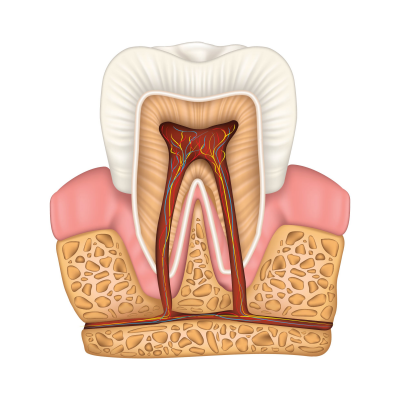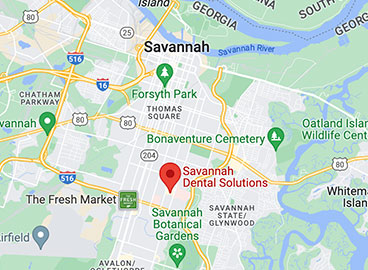A root canal is a common but frequently misunderstood dental procedure. Although modern dentistry has rendered root canals virtually pain-free, they are arguably the most feared of all dental treatments. Knowledge is power, and understanding the process can help ease your mind if you are facing a root canal.

What Is a Root Canal?
In a root canal, the dentist first numbs the tooth completely. He or she then creates a small opening from the tooth’s crown to its root chamber, exposing the canals. The canals are thoroughly cleaned of infected pulp and tissue, smoothed and reshaped as necessary, and then filled and sealed with a material that is biocompatible. Posts can be placed in one or more canals to help support the tooth. Finally, a temporary filling is placed to protect the tooth while a crown is created.
Why Are Root Canals Performed?
Root canals are performed whenever a tooth’s nerve becomes inflamed and the pulp tissue becomes infected. Trauma and bad decay are the most common causes for root canals. A root canal can often save a tooth that would otherwise have to be pulled.
Although teeth that need root canals occasionally show no symptoms, this is not often the case. Most of the time, you will experience such symptoms as severe pain when chewing, sensitivity to heat and cold, tooth discoloration, or swelling in the gums around the infected tooth.
If the tooth is not treated or removed, it is likely to cause an abscess. Hallmarks of abscesses include severe pain, weeping bumps on the gum, and moderate to severe swelling. If left untreated, an abscess can cause further tissue damage, grow around the bone, and even cause systemic infections.
Are Root Canals Painful?
With modern techniques, root canals are no more painful than any other dental procedure. In fact, since most teeth that require root canals cause pain, many people report feeling better immediately after the procedure. If you experience pain or discomfort at any time during any dental procedure, let your dentist know right away so that more numbing medication can be applied.
How Long Will Healing Take?
After the numbness wears off, you may experience some mild discomfort that is roughly equivalent to what you would expect after a filling or other common procedure. A mild, over the counter pain reliever should be enough to alleviate any lingering discomfort. You might find that the tooth is sensitive to pressure and temperature extremes for a few days, so try to avoid chewing directly on that tooth. Of course, if you experience any unusual pain, it is important to call the office right away. Most people feel completely back to normal in just a couple of days.
What Are the Risks of a Root Canal?
Root canals are considered very safe, but like any major medical or dental procedure, very slight risks always exist. The most likely, though still rare, complication is a re-infection. This is normally caused by the breakdown of the sealing material over time, although it could happen more quickly if your dentist misses one of many infected canals. If you experience any pain or signs of infection, call your dentist immediately.
What Is the Long Term Prognosis for Root Canal Treatment?
Root canals have an effectiveness of roughly 95%, and many teeth that receive this treatment last for a lifetime. While you are waiting for your permanent crown, try to avoid biting or chewing directly on the affected tooth. Once your restoration is complete, however, your tooth will look and act identically to any other tooth. Make sure you practice excellent oral hygiene, including regular brushing, flossing, and dentist visits, and you are unlikely to experience any problems with the tooth.
What Are the Alternatives to a Root Canal?
Unfortunately, there is no alternative to a root canal besides pulling the tooth. At that point, the tooth can be replaced with a dental implant, a partial denture, or a bridge. These procedures are excellent alternatives for teeth that cannot be saved, but ultimately nothing is as strong and useful as your own natural teeth. Therefore, if you have a badly infected tooth, it is important to perform a root canal as soon as possible.
Married dentists Chad and Alexandra Schnabel welcome you to Savannah Dental Solutions. From caring children’s dentistry to high-tech cosmetic procedures and even full-mouth reconstruction, we blend the latest technology with traditional customer-oriented values. To start your journey to better oral health, call us today at (912) 354-1366.






